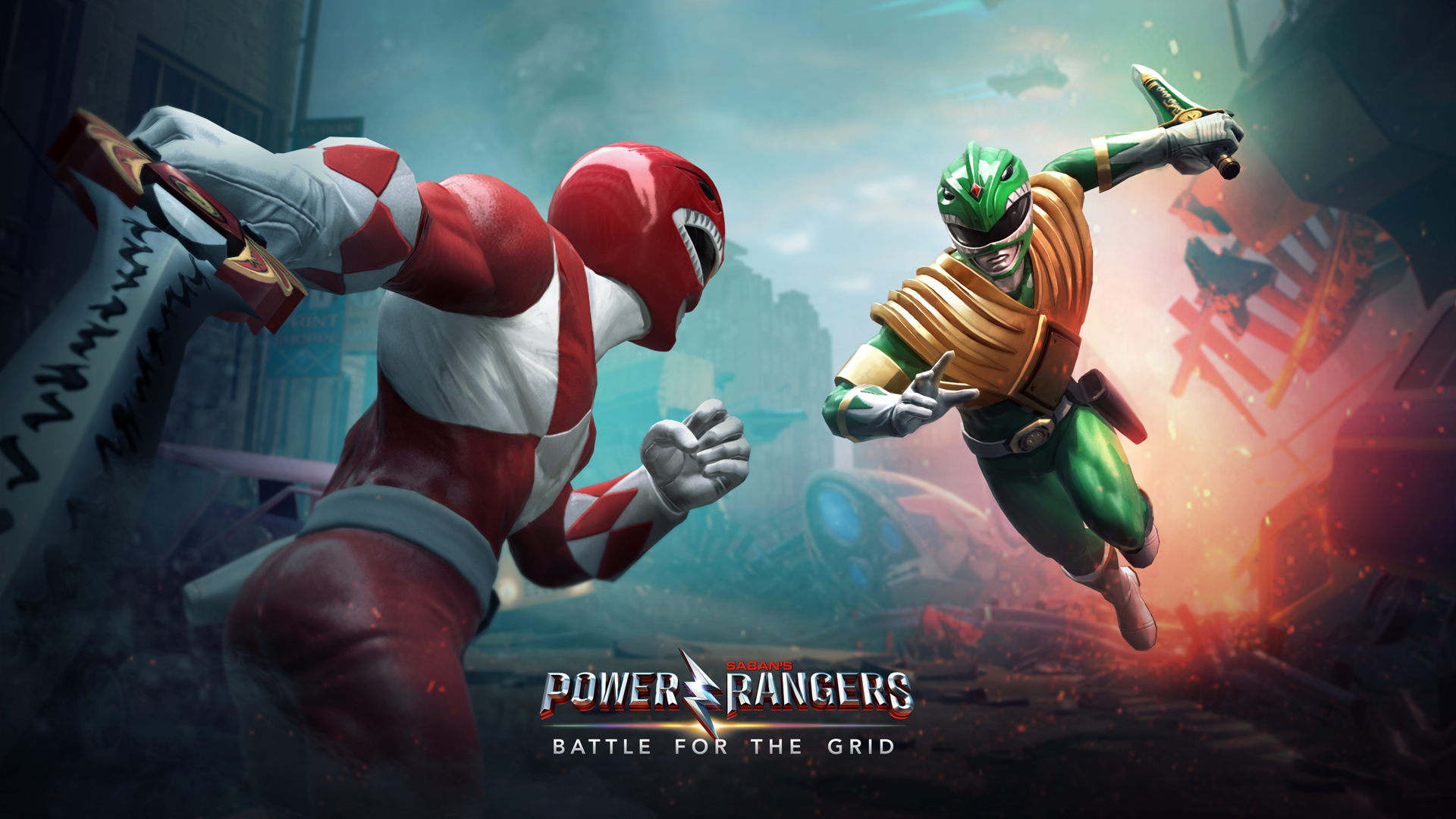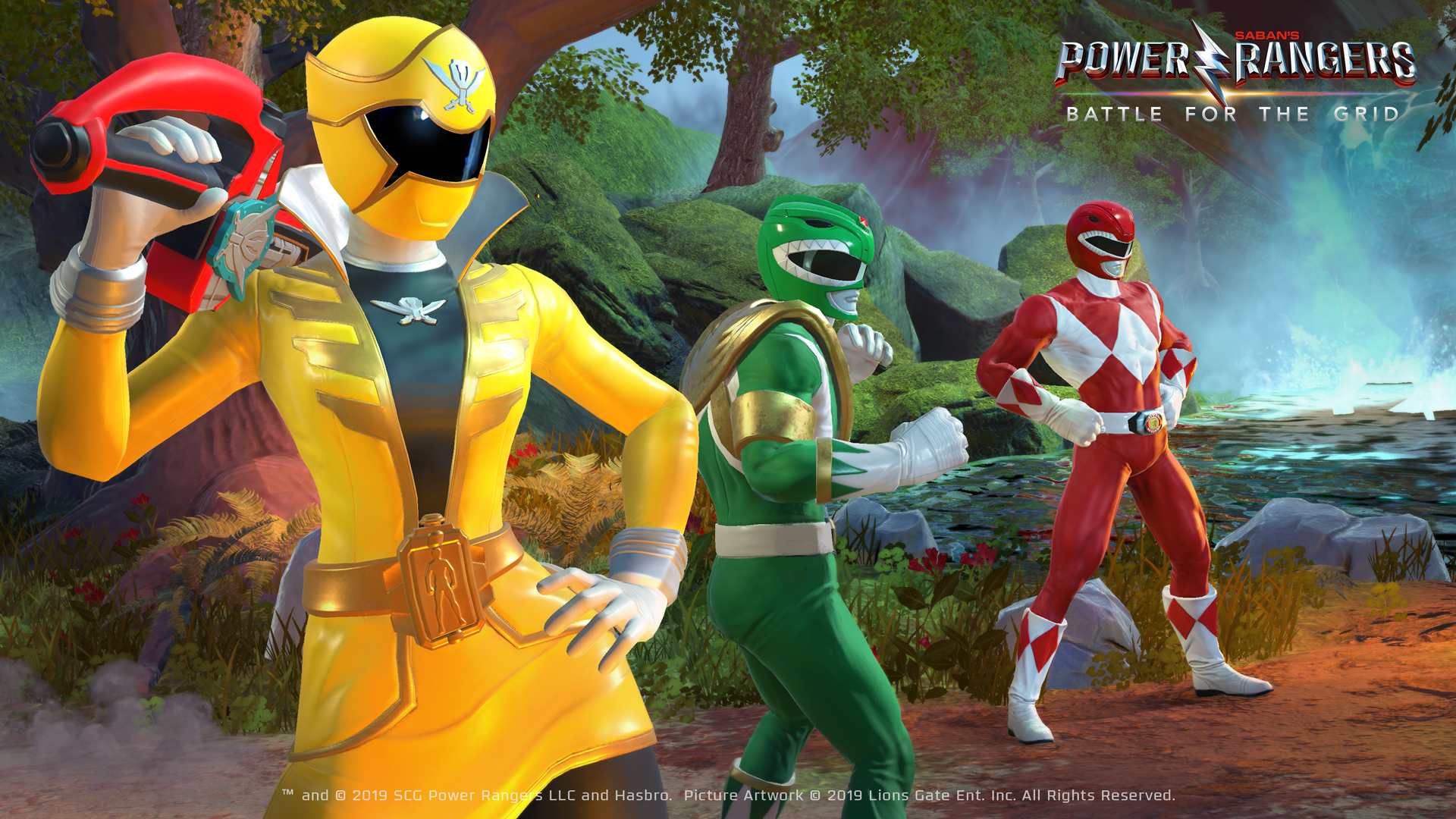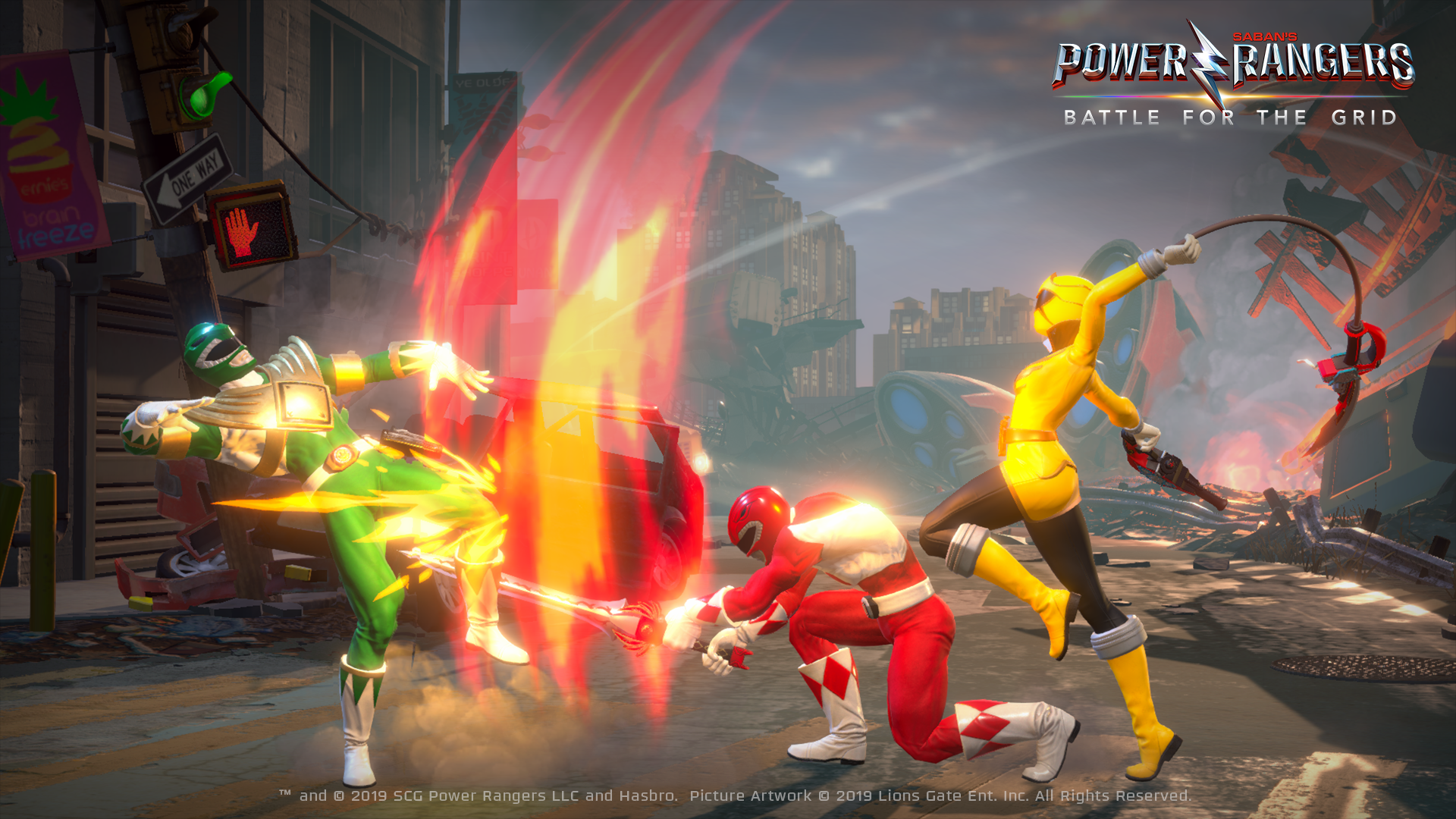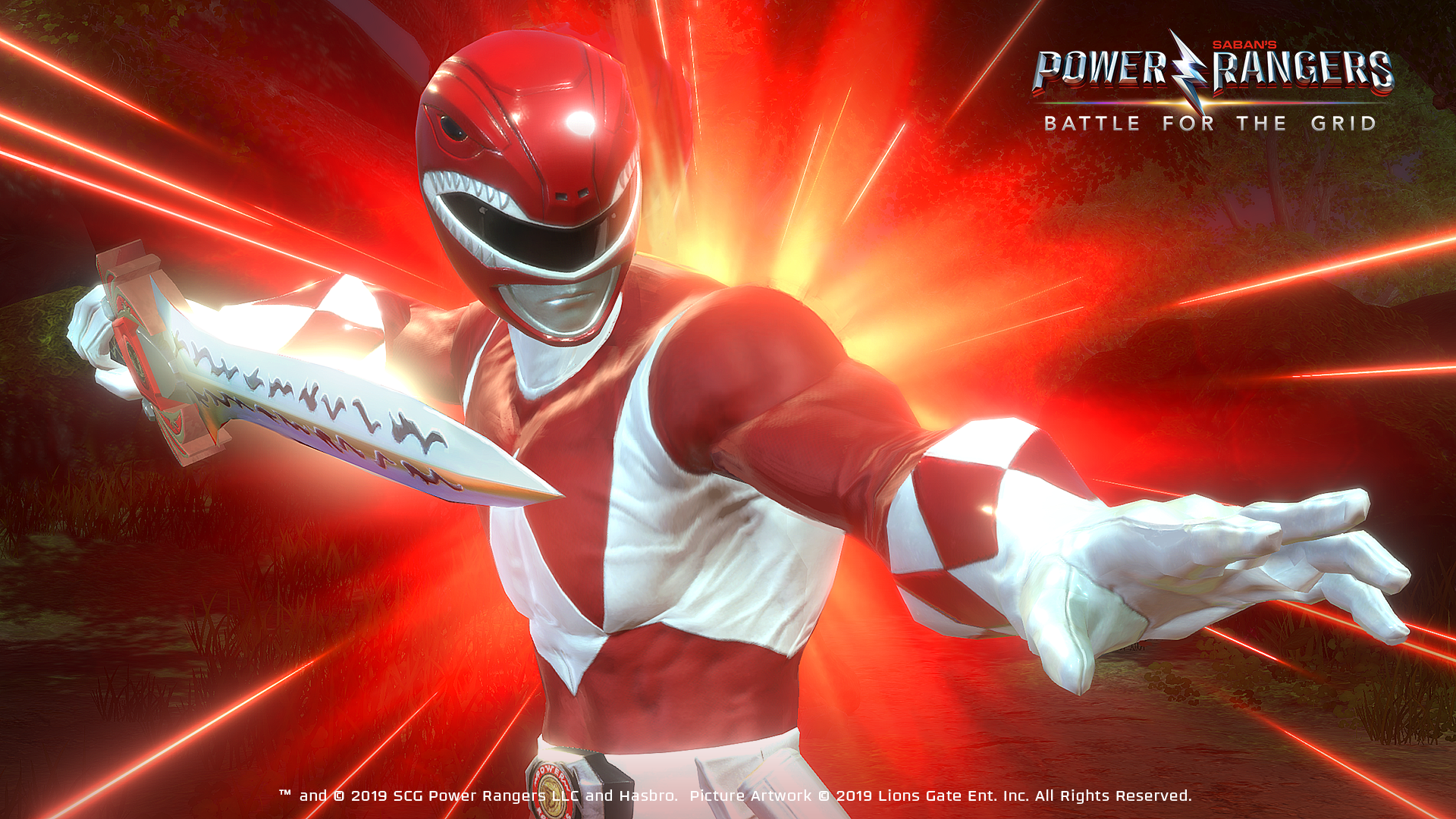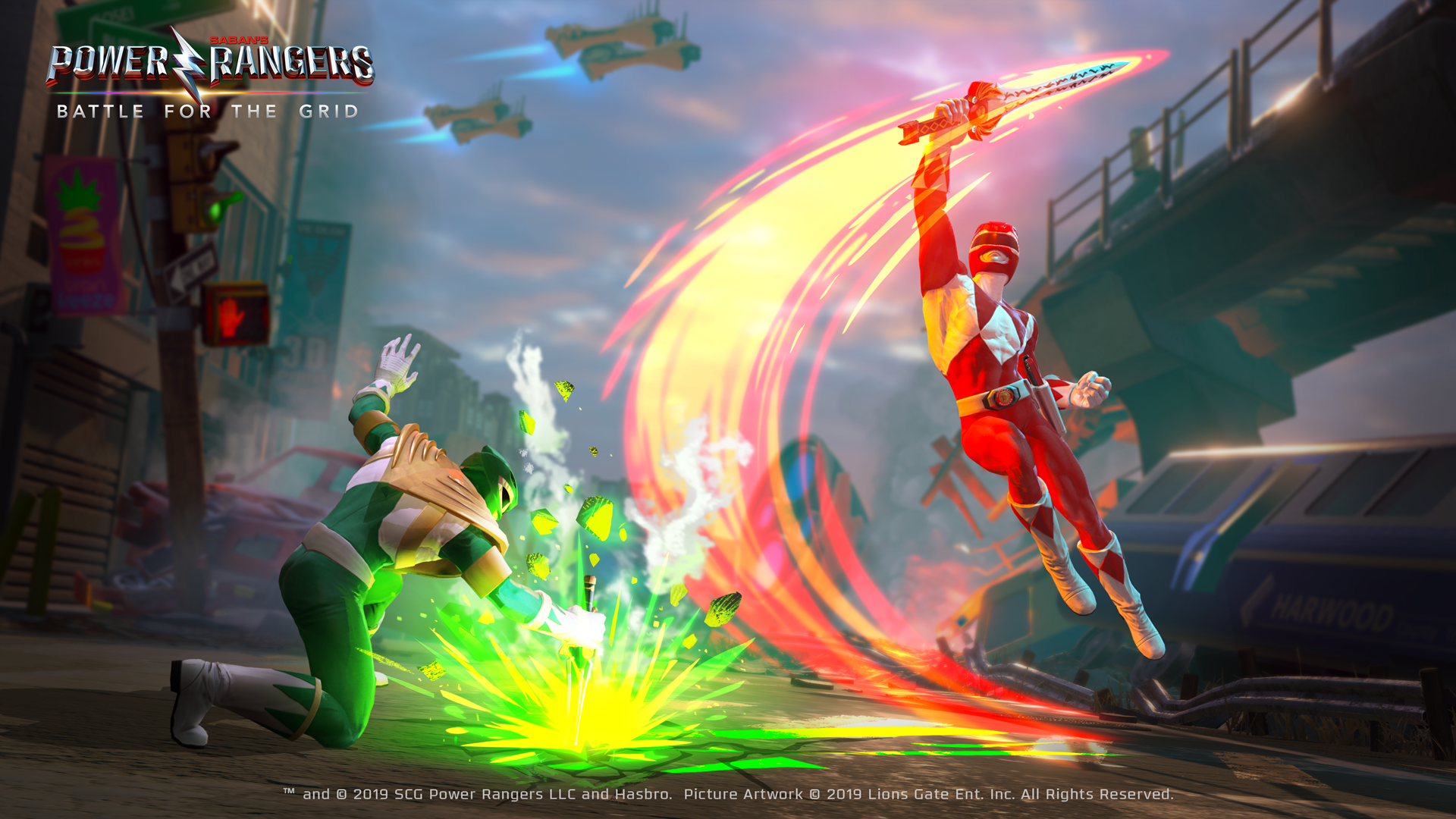Hasbro, Lionsgate, and developer nWay were all set to announce Power Rangers: Battle for the Grid next Tuesday, January 22. Unfortunately, Power Rangers: Battle for the Grid was leaked early, leading to the game being revealed on the same day Mortal Kombat 11 was fully unveiled. Still, nWay took this early announcement in stride, with Senior Product Manager Jesse Cherry telling me that "the response has been good" so far in a recent interview: "There are a lot of Power Rangers fans excited."
Still, the response has been tepid from others who think the game looks like a quick cash-in mobile port, mostly because nWay also worked on the popular iOS and Android fighting game Power Rangers: Legacy Wars. Call these people trolls, but the game just being a mobile port was a significant concern for some. nWay is hoping to quell this stigma.
Jesse Cherry was quite adamant about Power Rangers: Battle for the Grid being "made from the ground up" for consoles. He bluntly said to DualShockers multiple times throughout a recent interview that "this is not a mobile port," even if some of the tech from Legacy Wars is being used to improve Power Rangers: Battle for the Grid's matchmaking and cross-play features.
The developers seem quite confident in delivering a satisfying 3v3 fighting games that elicits a similar feeling to Dragon Ball FighterZ as well as the Marvel vs. Capcom series on consoles. While "some of the same tech" from Power Rangers: Legacy Wars was used on Power Rangers: Battle for the Grid, mainly concerning the multiplayer mode's matchmaking, Jesse highlighted one essential part of development that was wholly original for the PC, PS4, Xbox One, and Nintendo Switch game to me: animation.
[pullquote]"This is not a mobile port."[/pullquote]
"This is from the ground up, full movement, and what you expect from console team based fighters like Marvel vs. Capcom or Dragon Ball FighterZ," he confirmed."There are all new animations. We had to create new rigs because in the mobile game our characters didn't have certain points of articulation that we needed for a game on consoles. So this is brand new." nWay was wholly dedicated to properly adapting the source material with the animation as well, watching several episodes of the classic shows and recreating several classic moves within Power Rangers: Battle for the Grid.
You may be wondering why nWay, Hasbro, and Lionsgate, all of whom typically liked to focus on mobile games in the past, are deciding to release a console game. According to Jesse, this decision was mostly based on fan demand. "Constantly in our mentions and comments, people were asking ‘can we get a full controller, Marvel vs. Capcom style fighting game for consoles. That’s what spurred [Power Rangers: Battle for the Grid] on," he revealed.
Making this Power Rangers title for consoles a fighting game was also apparently a natural move for the studio. "Everyone in the studio" over at nWay is apparently a big fan of fighting games, with some staff members being "old-timers that even grew up playing Street Fighter II in the arcades." Drawing from their love games like Street Fighter II and more recent titles like Super Smash Bros. Ultimate, nWay's focus has been on fighting games recently, coming to a head with Power Rangers: Battle for the Grid.
[pullquote]"Constantly in our mentions and comments, people were asking ‘can we get a full controller, Marvel vs. Capcom style fighting game for consoles."[/pullquote]
This passion for fighting games has inspired them through the studio's development and consistent support of Power Rangers: Legacy Wars. When it comes to fighting games, Jesse Cherry says nWay loves to put "a new spin on them, make them more synchronous" which he thinks the studio achieved with Legacy Wars and is now "chomping at the bit" to do so once more, now on consoles.
After learning all this, I asked Jesse Cherry what some of the most significant differences were developing Power Rangers: Battle for the Grid for consoles when compared to Power Rangers: Legacy Wars' mobile development. While he was quick to point out that "there’s a lot of similarities more and more nowadays," there were defiantly a few key differences when looking at Battle for the Grid's development.
The game isn't free-to-play, which was a significant change for them, but being on console also meant that the experience had to be "far more focused on moment to moment gameplay." As Jesse points out, its typical of mobile game players to experience their games in 10 or more short five-minute gameplay bursts over the course of a day instead of one long gameplay session. Due to that fact, Power Rangers: Legacy Wars was designed with the ethos that nWay "always want to give the player something to do" in a meta-game sense.
As I briefly mentioned before, developing Power Rangers: Battle for the Grid for PC, PS4, Xbox One, and Nintendo Switch meant nWay made the design decision to focus on exciting "moment to moment" gameplay that would sustain a player's interest so "you can go for thirty minutes or more." As such, there is apparently less of an emphasis on the "meta-game systems" that were used in Power Rangers: Legacy Wars to encourage players to consistently return to the game.
Even though it is clear that nWay has made a massive effort to distinguish Power Rangers: Battle for the Grid from its mobile predecessor, the game did bolster itself with some of the experience and tech learned from Power Rangers: Legacy Wars. Jesse Cherry told us that these cherry-picked systems are what make "players feel good as they are playing," and mainly concern the multiplayer portion of Power Rangers: Battle for the Grid.
The central aspect pulled from mobile is matchmaking, as the massive infrastructure Power Rangers: Legacy Wars had allowed nWay to learn a lot about how to properly structure things. "Here’s something that was helping us that we could take over to the console games," commented Jesse as he revealed that this infrastructure also helped ensure the game's impressive cross-play and cross-progression capabilities made it in at launch. "It takes a team of server engineers to make this work, but luckily we had that."
[pullquote]"We make the games on Unity, so we’re really familiar with it now which makes things a lot easier when making new projects."[/pullquote]
Working on Power Rangers: Legacy Wars also meant that nWay became very knowledgeable about how to handle developing a game based on the classic franchise. "Luckily a lot of the research that we did for Legacy Wars sort of comes over here," Jesse told me, also commenting that the developers' experience with Power Rangers and working with the game engine Unity makes "things a lot easier when making new projects."
Jesse also believes that nWay's experience with mobile game development will also ensure that the game's progression system and ranked mode are quite fun and satisfying to get through. While it's true effect remains to be seen in the full game, it was probably a wise decision for nWay to learn from and improve upon the aspects of mobile game development that transition nicely into console game development.
While there are still a lot of unknowns surrounding Power Rangers: Battle for Grid following its announcement, which came less than three months before its official launch, we can say for sure that the game will not be a hastily slapped together mobile port. The systems that were brought over from Power Rangers: Legacy Wars only seem to help Battle for the Grid's multiplayer features and meant that the game could be created in "a far faster than regular sort of cycle just because of how much we learned."
In the end though, Power Rangers: Battle for the Grid seems like it has been able to build something that feels wholly original on the groundwork laid by Legacy Wars. If it isn't already clear, nWay has put its foot down and stated that Power Rangers: Battle for the Grid "is not a mobile port," so you shouldn't let that stigma stop you from keeping an eye on and potentially picking up the game.
Power Rangers: Battle for the Grid will be releasing for Xbox One, PS4, and Nintendo Switch sometime this April with the PC version of the game to follow later in 2019. Stay tuned to DualShockers over the next week for more Battle for the Grid coverage based on our interview with nWay Senior Product Manager Jesse Cherry.

